Back when “the Big Three” were the only game in town, do you remember how exciting Septembers were, you vintage TV-crazed viewer? Sure you do. How exciting the prospect was for the upcoming slew of new TV shows, thoughtfully brought to you by your friendly networks, entirely free of charge? It was as if you had this whole new group of friends who were waiting to entertain you, and all you had to do was turn on the TV to see them, to welcome them into your home.
By Paul Mavis
It was the only thing, at least for me, that made going back to school bearable—among many other unbearable things (I understand there are other people who had, rather amazingly, hobbies and church and sports and something called “loving families” to help get them through their early years). It’s not surprising, then, that I have clinical nostalgia depression such an overpowering nostalgia for those times.
That primal, seasonal connection between the networks and streaming channels and the viewer is entirely absent today. If you can find someone under 40 who actually consumes traditional network television as their main entertainment diet, they may kinda sorta get what we mean when we vintage TV survivors dreamily pine for all those long-gone “new TV season Septembers.” However, for most kids today, the months of the year hold no distinct claim on their TV viewing habits or memories…if they even watch TV. Complete freedom to choose what to watch, and when, has now eliminated that (largely) “one time only” aspect of television watching from all those years ago. The uniqueness of the TV calendar, is gone.
So that’s why I drink, and why I watch old TV…even if I have to do so through the mechanism of today’s rootless, rudderless delivery systems of DVDs, streaming, and ersatz “nostalgia channels” like MeTV or Cozi. A few weeks ago, I reviewed the miniseries, Captains and the Kings, the first installment of NBC’s experimental weekly “miniseries series,” Best Sellers. We had a nice response to that piece (momentarily roused, our dipsomaniacal security guard at Drunk TV global HQ burped, “Loved it!” and then shat himself), so I thought why not review the entire four miniseries run of NBC’s Best Sellers? Its second installment? The sweeping military/romance epic, 1976’s Once an Eagle, from Anton Myrer’s 1968 bestseller, starring, among a cast of tens, Sam Elliott, Cliff Potts, Darleen Carr, Amy Irving, and Glenn Ford.
With a busy, event-filled running time of 540 minutes that covers two world wars, a complete synopsis of Once an Eagle would be beyond the endurance of this rather shaky reviewer. So just a brief outline of the major players and the story’s themes will have to suffice. Structured as a flashback on the eve of a horrific battle campaign in the South Pacific during WWII, Once an Eagle jumps back to America’s involvement in WWI, with the induction of Nebraskan farmboy Sam Damon (Sam Elliott) into the army.
A principled young man, Damon won’t take advantage of his hometown girl Celia (Jennifer Shaw) because he knows he’s committed not to her, but to the service, nor will he forget the menace and debilitating fear instilled by his immediate superior officer, Merrick (Clu Gulager), a psychopath who uses the military to express his murderous impulses. Rising slowly up through the ranks, Damon impresses his commanding officer Colonel George Caldwell (Glenn Ford), eventually winning from him a battle commission for his cool-under-pressure, humane leadership qualities, and brave tactics behind enemy lines. It doesn’t hurt, either, that Colonel Caldwell has a strong-willed daughter, Tommy (Darleen Carr), a nurse who hates the war, who might finally meet her match with the equally-stubborn Damon.
Slimy backroom manipulator Courtney Massengale (Cliff Potts), is the genetic opposite of Sam Damon. Utterly unscrupulous, with a single-minded mission to become a powerful leader in the U.S. military, “Court” will do anything to get ahead, including marrying socialite Emily Pawlfrey (Amy Irving), even if he may not be all that, um…enthusiastic about his husbandly duties. When he married Emily, it was for show, a necessary window-dressing for a career officer intent on presenting the “right” image. But when the reality of her loveless marriage finally sinks in with Emily, she goes disastrously off-course, taking random lovers and spiraling down into emotional collapse, eventually giving birth to an illegitimate daughter.
Damon, on the other hand, has absolutely nothing of value to offer Tommy in her marriage except his love. However, Tommy soon finds out that Sam has two loves: her and the Army, and his dedication to staying a soldier, even after his horrible experiences in the trenches of WWI, will eventually threaten the very foundation of their marriage. For Damon sees it as his duty to stay in the Army to protect the service from the likes of killers such as Merrick, and incompetents like Courtney, who use the service for their own psychological and political purposes—at the detriment (and death) of the soldiers they command.
Damon knows war is coming again, and his love of the service is predicated on doing his job well, regardless of what compensations in rank he may or may not receive—an idea the war-hating Tommy eventually comes to despise. When WWII finally does come, war-mongering Court and valiant protector Sam’s paths will cross again, with devastating results.
RELATED | More 1970s TV reviews
The last time I watched Once an Eagle, I reviewed it for DVD Talk…which is, hilariously, no more (you fire your most popular reviewer because he’s a conservative, you begin a death spiral you can’t pull out of. It’s simple math, liberal dipshits). So when I decided to review all the NBC Best Sellers miniseries, I thought I’d first take a look at Anton Myrer’s hefty novel, to see what all the hubbub was about (apparently…it’s required reading for Marine officer candidates?). Unfortunately, a bad case of the shakes, along with constant phone interruptions (so you have to pay your bills?), made it impossible to sit down for 20 hours with that doorstopper. It’s just so much easier to watch it.
The D.T.s and deadbeatedness aside, the inherent irony in a mini like Once an Eagle is that the newly-minted miniseries format finally allowed a longer novel like Myrer’s to be presented on TV screens far more faithfully (at least in terms of presenting more original plot points)…only to have 1970s television’s artistic conventions and economic realities ultimately work against this largess of story development. We certainly get more of Once an Eagle‘s scenes dramatized here than we would in a 2-hour big-screen adaptation. However, in the quick-paced, budget-conscious world of 1976 television, directorial innovation, evocative or symbolic editing, and expressive mise-en-scene, are largely absent here.
It’s a trade-off that frequently afflicted many of the early minis, and it certainly holds true with Once an Eagle. Co-directed by TV vets E. W. Swackhamer (the greatest name ever held by a director) and Richard Michaels (although you’d never know two entirely different hands were at the helm of this anonymous-looking movie), Once an Eagle is as visually square and cookie-cutter as most TV was back in 1976, where the network motto was: keep it close, keep it in focus, and keep the heads in the center of the box. Editing is A-B-C (when it makes sense), and the production design is more clever than convincing in getting across period verisimilitude (the sets look cheap now, but they were relatively lush then, while the hills of Malibu and the Fox ranch switch hit for everywhere from France to England to mainland China and New Guinea…and not too badly, either).
So as the parade of close-ups and two-shots unwinds before the viewer for over six hours, concentration comes to bear on the scripting and the performances, and this is where Once an Eagle works fairly well. Long-format serials like Once an Eagle can’t help but draw in viewers already predisposed to enjoying multi-arc, generational stories such as this. Serious themes aside, it’s the TV equivalent of a real “page-turner,” where we find ourselves simply wanting to know what’s going to happen next in this long, long saga.
Part of the fun is knowing beforehand that we’re going to invest a significant amount of our time with the story (Timeless Media, who released this disc set, gets that important marketing aspect: they prominently display, “Over 7 Hours!” in a starburst on the DVD’s front cover). So we get that same initial pleasure surveying Once an Eagle‘s 540 minute run time, as we do when we hoist that huge hardcover onto our laps for a summer read at the beach. If it has that much to say, it must be interesting, we tell ourselves.
Click to order Once an Eagle on DVD:
And as with most minis from that period, source material was selected by the suits that emphasized themes that would appeal to viewers: namely sex, romance, and other melodramatic conventions. The networks weren’t going to invest several nights of programming on dry academic or philosophical works…unless there was coarser, saleable material included to juice up the ratings’ potential.
Once an Eagle certainly features those kinds of moments, from the beginning of the story, when buxom Jennifer Shaw strips down for Sam Elliott and pulls out her blockbusters, offering herself to him without reservation (hot stuff in 1976…which he inexcusably turns down), to Amy Irving’s and babydoll-voiced Melanie Griffith’s various sexual escapades (Griffith “enjoying” Jimmy Olson and another sailor in the park, is, well…she’s tops with me, that’s all), to Cliff Potts’ perverted beating of a French prostitute because he’s either sexually dysfunctional or asexual (it’s scripted very carefully to suggest, without stating explicitly, due to the network’s stringent Standards and Practices guidelines).
Obviously the two central romances—with their sidelines of adultery—dominate the screen time, too. Anyone tuning into Once an Eagle back in ’76 got a fairly liberal dose of passionate romance—and blatant carnality—on any given night of its run (check out lush Melanie Griffith crying, “No, Daddy!” over and over again as she’s whipping with a belt by Potts—notably weird for ’76 TV). But to its credit, Once an Eagle‘s script does try and delve, however clumsily, into more intellectual and philosophical territory, specifically with its meditations on the nature of war.
Nothing said lovin’ like “racial conflict” for 1970s network TV execs, so Once an Eagle‘s sidebar on the treatments of blacks in the Army (and at home) is potentially a fine dramatic pull. By 1976, it certainly wasn’t new to see scenes such as bigot David Huddleston pushing around racially-mixed Carmen Argenziano, or even later donning a Klan hood and killing Argenziano and his wife in a nighttime assault on their house (familiar…but effectively done here). It’s too bad, then, that the character of their son, later played by Kario Salem, just pops up later in the mini, without context (where we get a little From Here to Eternity re-do as he’s beaten in the brig by psycho Clu Gulager), before disappearing again…only to reappear at Sam Elliott’s side, with absolutely no explanation. A likely source of meaningful drama is chopped up into nonsensical, coincidental melodrama (and it ain’t helped by Salem’s unintentionally hilarious thesping).
Far better is Once an Eagle‘s script exposing the callous brutality of institutionalized warfare embodied by either out-and-out killers or pencil-pushing glory hounds, while holding up the virtues of soldiers and leaders like Sam Damon who abhor war…and yet know they must always be vigilant in preparation for such action. Network TV content in 1976 was already forcefully turning to the Left, so it’s not surprising that Myrer’s anti-war sentiments are given full airing through several characters, including Carr’s Tommy Caldwell (her, “brave, dumb kids who didn’t know what they were getting into,” applies to WWI soldiers, but it’s no stretch to connect it with Myrer’s thoughts about Vietnam).
Her son, New Deal FDR idealist Donny (Pomeranian-American actor, Andrew Stevens), does his duty, flying a bomber over Germany, but he despises how his job entails killing civilians, while naively wishing international conflicts could be settled with talk, not guns. And Elliott’s best friend in WWI, Gary Grimes, goes AWOL (you can’t blame him—he’s shacking up with gorgeous Patti D’Arbanville), realizing war is a pointless game like “King of the Hill,” a game that never ends, and that you can never win (“No matter how good you were…off you go,”). All of this sounds exactly like what you would expect from a post-Vietnam network TV series dealing with warfare and the military.
Far more surprising is Once an Eagle‘s determination to equally emphasize Myrer’s pro-military viewpoint (frankly, a huge accomplishment in post-Vietnam Hollywood, where one of the top shows on television was the rabidly, virulently anti-military M*A*S*H, and where the most common post-war occupation for a vet was “psycho” on shows like Mannix and Hawaii Five-O).
RELATED | More Miniseries Reviews
Sam Damon’s professional soldier is shown in an overwhelmingly positive light. The script doesn’t take any easy ways around the dichotomy of Damon, who admits he loves the challenges of warfare, and yet understands the devastating impact, both emotionally and psychologically, that warfare has on the soldier (I’m surprised Universal, who produced Once an Eagle, didn’t film the final part of Myrer’s novel, which dealt critically with a fictional Vietnam). However, what is made consistently clear is that Damon’s devotion to the military is honorable, worthy of admiration, and most importantly, necessary. Writing home to his mother, he states, “I can’t explain it. There’s something about doing what’s asked of you. Of doing it well. Of fighting harder when you think you’re going to drop. Because you’re doing what’s right. Doing what’s gotta be done.”
By contrast with the slimy, amoral politician/soldier Court Massengale and murderous psychotic Alvin Merrick (played to perfection by Clu Gulager), Once an Eagle‘s proposition is that the only hope that America’s military has is a soldier like Damon, who stays in to train and inspire the next generation of recruits; who’s willing to take lousy pay and few if any promotions in exchange to remaining true to his ideals; and whose integrity is above reproach. And through the sweep of Once an Eagle‘s bookend world wars narrative, it’s clear that the survival of America is necessarily dependent on our military (a lesson learned and forgotten by many of our citizens throughout our history). How much depth of thought is actually conveyed concerning these issues, through Once an Eagle‘s often forced dramatics, is open to discussion. However, Once an Eagle does have something serious and weighty on its mind, and those themes aren’t lost amid the various tumbles in beds.
Fortunately, the impressive roster of then-familiar faces in the cast help smooth over the often-choppy narrative or poorly-developed characters. Certainly Sam Elliott is the anchor for the entire piece. 1976 was a big year for the then-emerging actor. In addition to this high-profile mini, he had the good luck to appear in the sleeper drive-in hit, Lifeguard, giving a sensitive portrayal in that well-received little movie. Contrasting his laid-back, casual performance in that big-screen feature, here he’s all determination and grit and integrity, and it’s a performance that would be echoed in many other similar roles for the actor. It’s a daunting challenge for an actor to “carry” a mini like Once an Eagle, and Elliott pulls it off with authority.
Cliff Potts gets what arguably should be the showier role—the main villain of the piece—but whether by scripting or design (Potts isn’t exactly an expressive, wide-ranging performer), his Court character comes off as one-dimensional with almost no shading. He’s a pompous schemer and glad-hander from his first scene…and it doesn’t change. Having spent so much time with him over 6+ hours, we never feel the character grow or change, nor do we feel even the slightest sympathy or even basic understanding for his sexual dysfunction. It works within the conventional schematic of the storyline—he’s a rotter and we know it, so we wait for his comeuppance—but it unbalances Elliott’s more carefully delineated character.
Old pro Glenn Ford is effortlessly commanding, in that curiously soft-spoken way of his, as the wise Colonel, while relative newcomer Amy Irving scores big-time in the minis’ most showy emotional scenes (she flips out with the best of them—her scene where she begs lover Ron Masak to help with her pregnancy is believably frantic). Unfortunately for such a critical role, only Darleen Carr really disappoints here (she’s much better suited to light comedy), failing to register much sympathy or heat with her flat, colorless turn (there is zero chemistry between her and Elliott). If I can’t believe that Elliott would be emotionally tortured over her, and if I don’t believe she’s a worthy ideological foil for his well-drawn character, that puts a big hole in the middle of Once an Eagle that’s hard to plug up.
Luckily, the large cast of pros, including Ralph Bellamy, Andrew Duggan, Lynda Day George, Robert Hogan, David Wayne, William Windom, Anthony Zerbe (just perfect, as always), James Cromwell, Dane Clark, David Huddleston, Albert Salmi, John Saxon, Barry Sullivan, a sexy Juliet Mills (impossibly slim and lovely and warm), Forrest Tucker, and Kent Smith (among many more), provides constant distractions from some of Once an Eagle‘s narrative flaws.
According to what I’ve researched, the first installment of NBC’s Best Sellers, Captains and the Kings was the highest rated of the four minis…while overall, Best Sellers failed at year’s end to crack the Nielsen Top Thirty (that 1976-1977 season’s undisputed winner in the miniseries category was ABC’s blockbuster, Roots). Premiering on December 2nd, 1976, and airing every Thursday until January 13th, 1977, Once an Eagle couldn’t compete against hits like Hawaii Five-O, The Tony Randall Show, Barnaby Jones, The Streets of San Francisco, or special ABC movie presentations like the television premier of What’s Up, Doc?.
You can debate why Once an Eagle failed to connect with big audiences, like the rest of NBC’s Best Sellers, but I wonder if the very structure of the Best Sellers series itself—taking “big event” specials like an expensive miniseries and making them more “ordinary” by presenting them in an expected, even routine weekly series structure, didn’t work against the basic marketing and pull of the miniseries format. It’s certainly an interesting thought. Next month, we’ll review the almost impossible-to-see third offering of Best Sellers, Seventh Avenue, a look at the New York garment district during the Great Depression, based on Norman Bogner’s historical novel.
Read more of Paul’s TV reviews here. Read Paul’s film reviews at our sister website, Movies & Drinks.

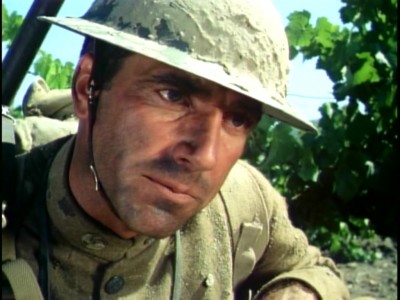

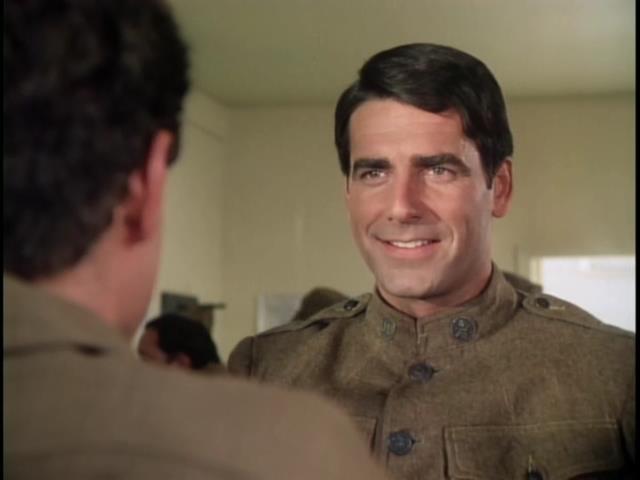
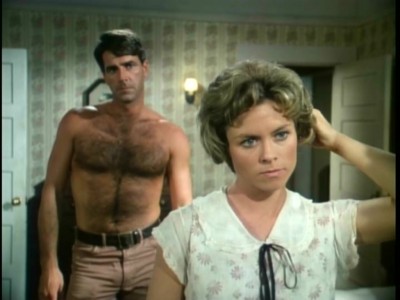
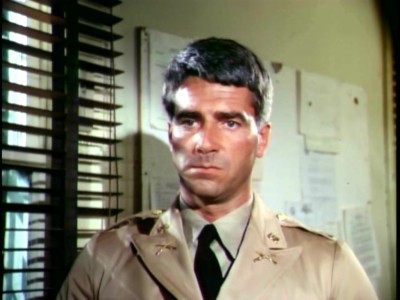
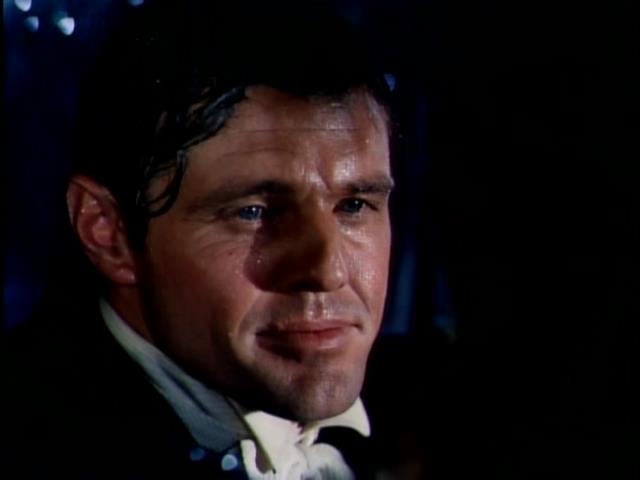
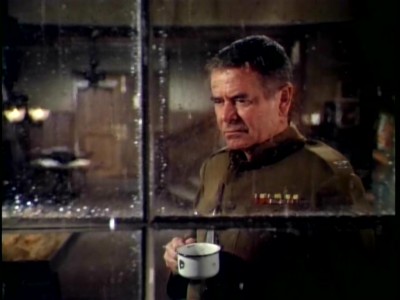



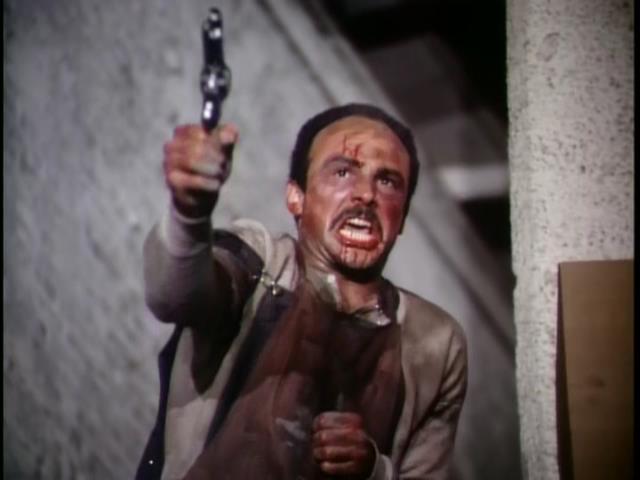
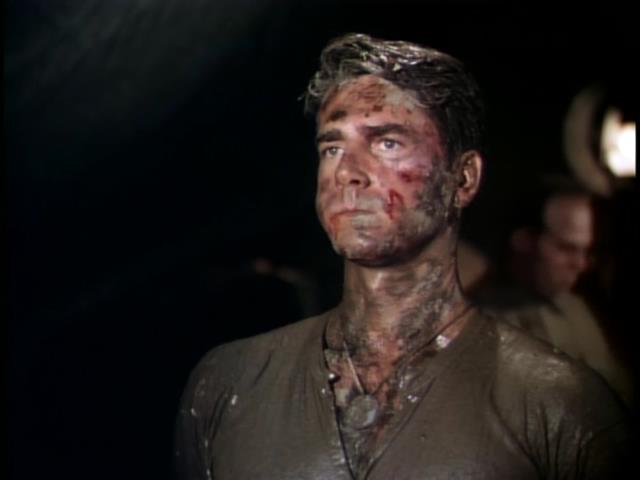

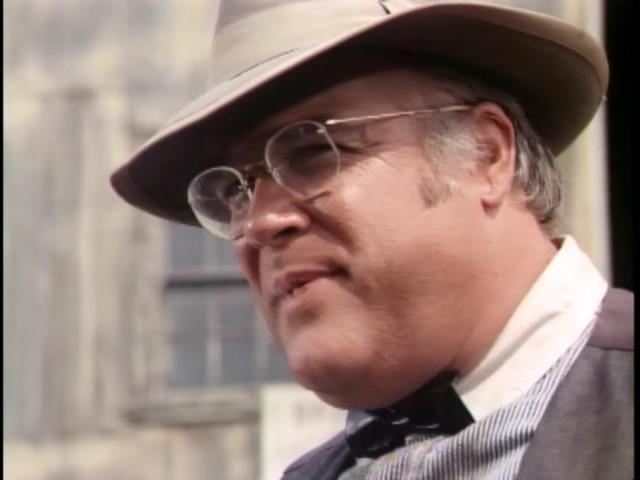
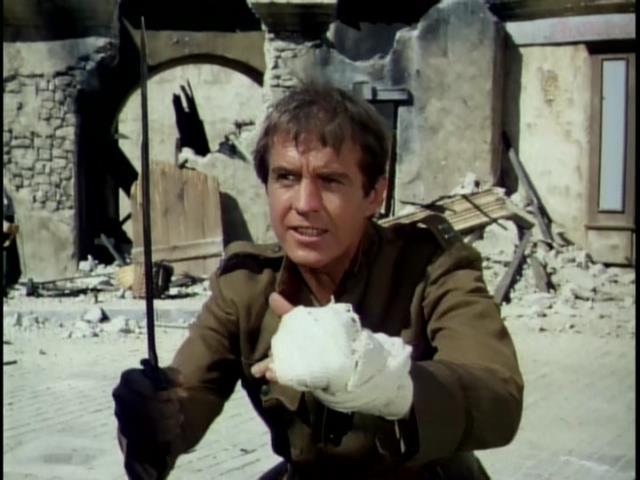
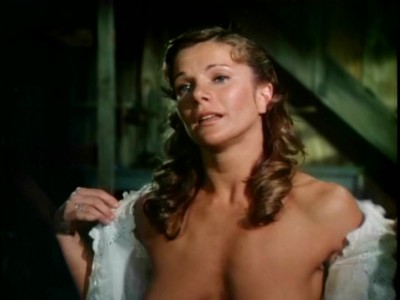




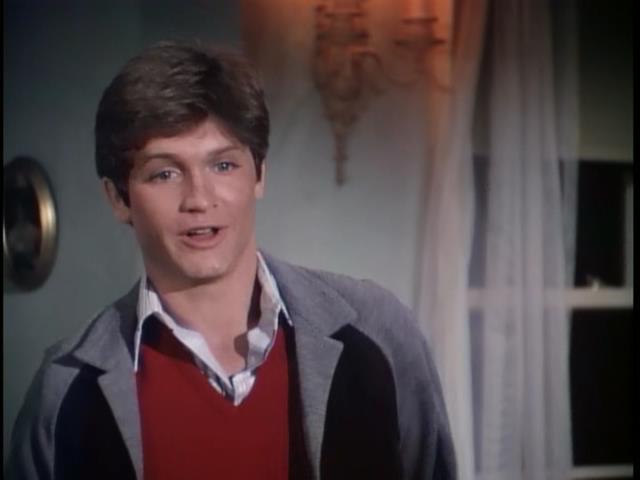




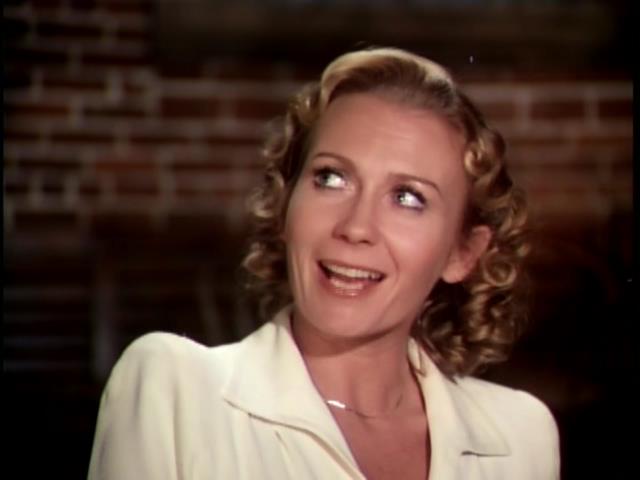
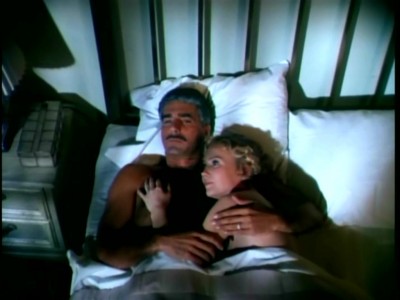

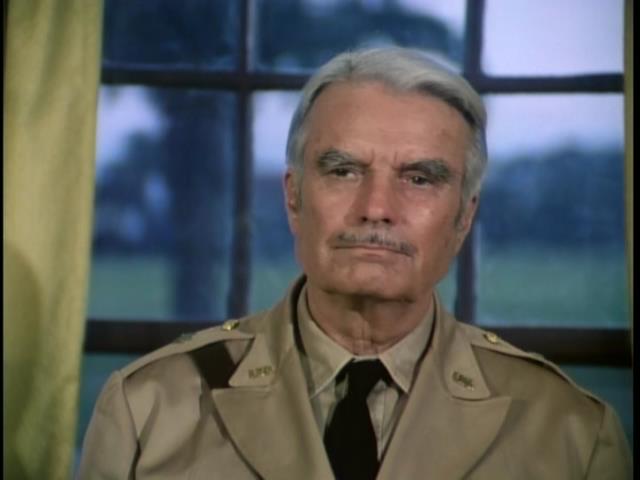
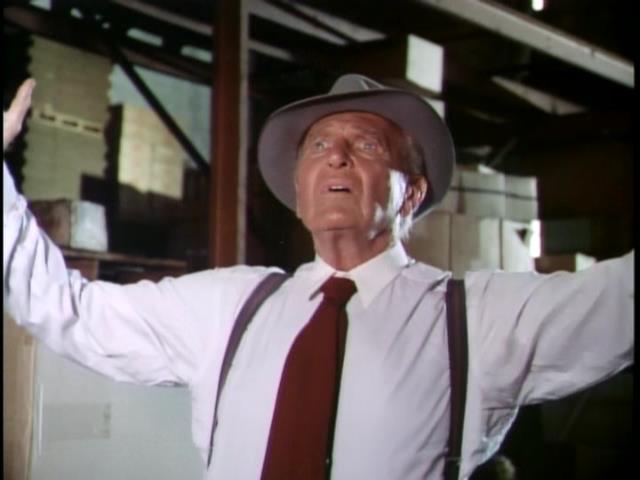


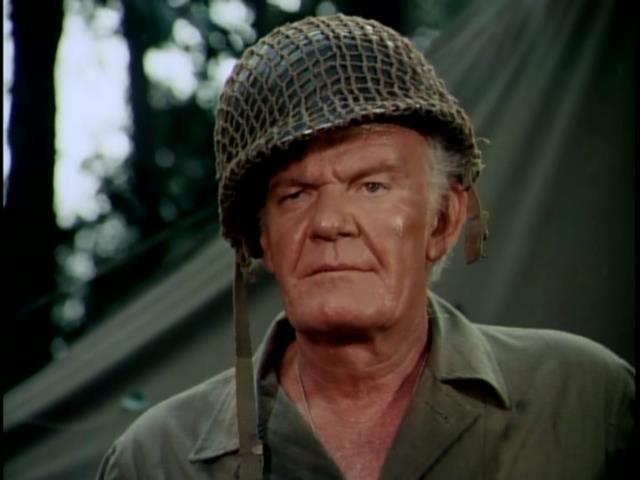
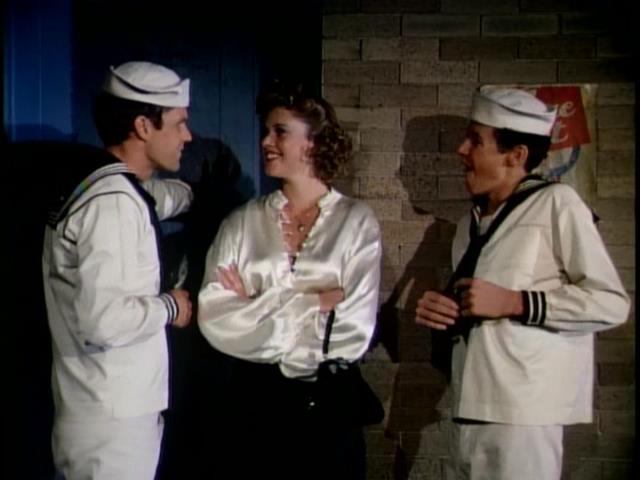
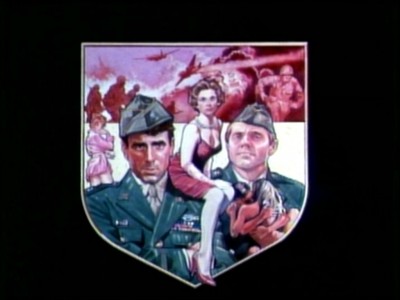

One thought on “‘Once an Eagle’ (1976): NBC’s second ‘Best Sellers’ mini a sprawling epic across two world wars”